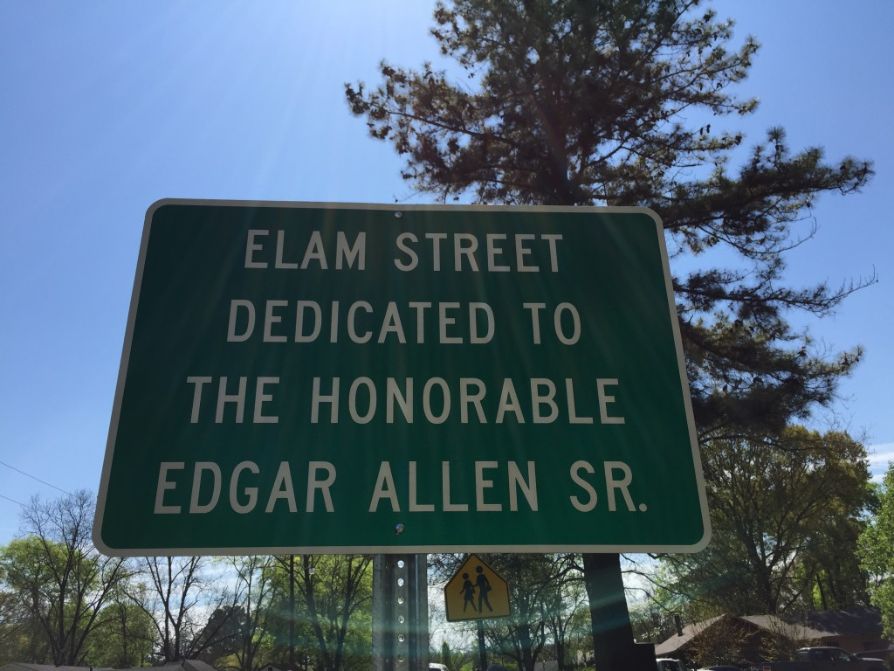
I’m sure Uncle Edgar didn’t set out with the goal of being honored, celebrated or having a street dedicated to him. He did what we all should do–he saw unmet needs and opportunities to create value in his community and addressed them. Period.
Scores of people came forward during Uncle Edgar’s funeral, his dedication ceremony and at other times to talk about the value he created. The theme of each and every comment and reflection centered on one word–service. Uncle Edgar served his country with honor and distinction in the Army. He served his city by being a member of the Midfield City Council. He served his church and many families by running a day care center housed in his neighborhood church. He served his neighbors by helping many to get jobs and maintain their homes.

Perhaps most significant to me was that city officials could have picked any street in the city to dedicate in my uncle’s honor. However, they elected his street–the street on which he lived, served and worked to improve for decades. The street selection was an acknowledgment that his neighborhood–and by extension his community and city–were better places to live because he and his family lived there. The selection meant that he made a commitment to his neighborhood, stayed there long enough to establish roots and made a significant and noticeable impact while he was there. We should all be so fortunate.
As I reflect on his life and legacy, I am beginning to learn a lot about myself and my family. Many people have rich family traditions steeped in fields such as politics, education, healthcare, business and/or ministry. Because so many of my elders worked in the coal mines and steel mills of US Steel, I often saw that as my legacy. However, I’m beginning to recognize a different tradition. My family’s legacy derives from a long line of strong men and women whose presence helped to organize, stabilize and improve their local communities. My parents, grandparents, uncles and aunts tended to be at or near the center of the informal networks of influence, respect and support in their communities. They didn’t look to move to a better community–instead they often preferred to stay and improve their existing communities. They didn’t look for fancy titles, positions or awards–they just did the work. This tendency persists today among many of my immediate and distant relatives. Our communities are more supportive and stable because we are there. When we leave, our absence is noticeable and missed.

Reflecting on my family’s heritage is helping me to understand my passion for organizing and improving my neighborhood and city. It’s part nature (I’m just predisposed to it) and part nurture (I saw my elders do it). My uncle’s life is a case study that he wrote for my cousins and I to study and learn from. It is who we are; it’s what we do; and we must embrace it. As such, I am committed to directing a portion of all of my research, my teaching and my service towards the stabilization and improvement of my neighborhood, my community and my city.
With that, I leave you with a question that the pastor asked during my uncle’s eulogy—it’s a question that has haunted as well as motivated me since that day: “When you’re gone, will your community miss you?”


